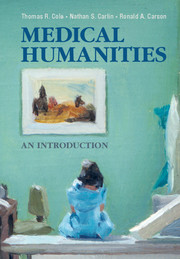Book contents
Part IV - Religion and Medicine
Part Overview
Summary
Part 4 of this book deals with religion. The subject of religion as well as insights from religious studies and theology are underrepresented in medical humanities. In contrast, history of medicine, literature and medicine, and philosophy and medicine – Parts 1, 2, and 3 of this book – have long been established in medical humanities. This is not the case with religion and medicine. Indeed, some medical humanists have noted this absence and have invited religious studies scholars and theologians to contribute to the field. Writing in an editorial for Medical Humanities, Stephen Pattison observes, “My own discipline, religious studies and theology, has not been particularly fully represented in these pages. This, I believe, is unfortunate.” Pastoral theologians have made similar calls.
Yet it would be inaccurate to say that religion has been ignored in medical humanities and in bioethics. In Chapter 22, we note that nearly all of the “founders” of bioethics had some ties to religion and that many of them were theologically trained but that in time, as bioethics became “secularized,” as Daniel Callahan (1930–) puts it, it became more problem- and policy-oriented as well as institutionalized and formalized. But medical humanities (in contrast to bioethics), with its pedagogical emphasis on educating humane doctors, did not secularize. If anything, spirituality is more important and recognized today in medical education than, say, forty years ago. Moreover, founding as well as contemporary medical humanists and bioethicists such as Larry Churchill (1945–),Leigh Turner, Courtney Campbell, Gilbert Meilaender (1946–), Laurie Zoloth (1950–), Andrew Lustig, Daniel Sulmasy, Paul Ramsey (1913–1988), Richard McCormick (1922–2000), William May (1928–), David Smith (1939–), Albert Jonsen (1931–) wrote from, or were informed by, theological perspectives about the relevance of such concepts as suffering, meaning, healing, mutual regard, other-directedness, dialogue, empathy, caring, identity, and justice to patient care.
- Type
- Chapter
- Information
- Medical Humanities , pp. 289 - 293Publisher: Cambridge University PressPrint publication year: 2014



